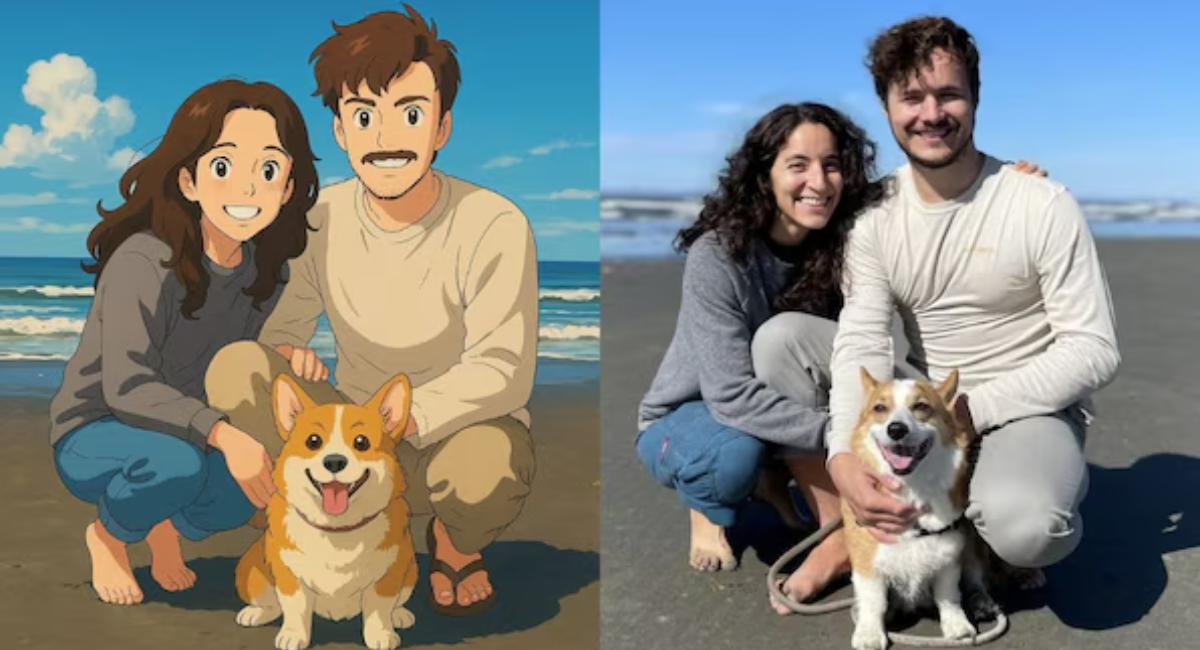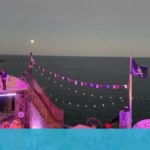The Ghibli-style AI art trend has taken social media by storm, with millions of users transforming their photos into animated visuals reminiscent of legendary Japanese animator Hayao Miyazaki’s works. Prominent figures such as Prime Minister Narendra Modi, Amitabh Bachchan, and Elon Musk have joined the craze, fueling its popularity further.
However, the viral trend has also sparked debates about copyright infringement and the ethical use of AI-generated art, particularly concerning tools trained on copyrighted creative works. While the trend continues to divide opinions, one question remains—who started it all?
The Man Behind the Trend
Seattle-based software engineer Grant Slatton is credited with popularizing the Ghibli-style AI art trend. On Tuesday, shortly after OpenAI introduced its upgraded image-generation tools, Slatton posted an AI-transformed photo of his family and dog at the beach on X (formerly Twitter). His caption read: “Tremendous alpha right now in sending your wife photos of y’all converted to Studio Ghibli anime.”
tremendous alpha right now in sending your wife photos of yall converted to studio ghibli anime pic.twitter.com/FROszdFSfN
— Grant Slatton (@GrantSlatton) March 25, 2025
While AI-generated anime-style images have existed for some time, Slatton’s post seemingly ignited the recent explosion of interest. His tweet rapidly gained traction, amassing over 45,000 likes and nearly 49 million views. As users across social media began sharing their own “Ghiblified” photos, the trend spiraled into a global phenomenon.
A Wave of Positive Responses
Speaking to Business Insider, Slatton revealed that he has been inundated with messages from users sharing their transformed images. “It’s the single most net-positive day I’ve ever seen on Twitter,” he said.
He further explained that OpenAI’s latest advancements have made the process significantly easier. Unlike previous versions, which required detailed prompts, the new model generates high-quality anime-style images with simple requests like “convert to Studio Ghibli please.”
Despite concerns about AI’s impact on human creativity, even some critics of AI-generated art have participated in the trend. Slatton noted that he had personally processed over 100 images for users who were unable to access the feature, adding that many requests were “heartwarming.”
The Ongoing Debate
While the trend continues to captivate social media, discussions surrounding AI-generated art remain heated. Fans of Miyazaki and Studio Ghibli have expressed concerns over the use of AI in replicating signature artistic styles, questioning the ethical implications of AI tools trained on existing works.
As the debate unfolds, the Ghibli-style AI art trend shows no signs of slowing down, with millions embracing the latest digital phenomenon. Whether viewed as an exciting innovation or a contentious issue, one thing is certain—the AI-generated anime-style wave is here to stay.





No Comment! Be the first one.